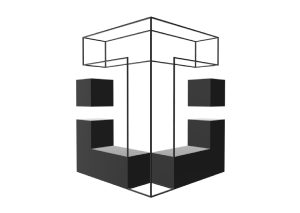Real estate is considered one of the safest and most attractive investment options today. This is mainly because the global population is increasing, while the amount of habitable land on Earth remains fixed. For this reason, the demand for real estate usually sees steady growth.
On the other hand, real estate can generate two types of profit for its owners. The first profit comes from the increase in the property’s value over time, and the second profit comes from renting out the property or living in it and saving on rent costs.
The problem is that while most people want to invest in real estate for housing or profit, few people have the necessary capital to enter this world, as real estate prices are high, especially for properties located in desirable areas with high potential for rentability or price appreciation over time. This poses a high barrier to entry that excludes many people.
Real Estate Tokenization
Tokenization of real estate is one form of tokenizing Real-World Assets (RWAs). What does this mean?
Tokenization simply means creating a token to represent something that exists in the real world. For example, if an artist produces a painting and tokenizes it, she can create an NFT and say that anyone who buys the NFT gets the actual painting.
Tokenizing the painting allows for several advantages, such as fractionalized ownership, where the artist can create 100 NFTs representing ownership of the painting, with each NFT representing 1% ownership. This allows a large number of people to collectively own the painting by paying 1% of its price.
Similarly, we can imagine tokenizing real estate by turning one property into 2,000 tokens, with each token representing 0.05% ownership of the property.
If the property is rented out, the rental income is distributed to the token holders according to each person’s share, for example if someone owns 100 tokens, they receive 5% of the rental value. At the same time, if the house is sold for a higher price a few years later, the amount is distributed to the token holders in a similar way.
Tokenization of real estate allows for two things that were not widely available before. The first is that it allows anyone to become a real estate investor by purchasing a share in a property instead of having to buy the entire property.
The second is that it allows for a high degree of investment diversification to reduce risk. For example, if someone has $500 to invest, they can use it to buy ten shares in ten different properties, so if some properties don’t rent out or appreciate, the rest make up for that loss.
Real Estate Tokenization in 2024
Now that we understand the concept of real estate tokenization, let’s take a look at the reality of this technology today.
In recent years we have already seen the emergence of companies that tokenize real estate and make it available for investment. These include the European company RealT, which purchases properties, rents them out, fractionalizes ownership into tokens, and sells them, with each token starting at around $50. There is also the company Tangible, which purchases real estate, gold, luxury watches and wines, tokenizes them, fractionalizes ownership, and sells them as tokens.
In the Arab region, there are two projects working on tokenizing and fractionalizing real estate. The UAE company Aqar Chain, developed by Smartchain, and the Saudi company Aqar Token, developed by the Saudi startup studio Asfa Ventures, both aim to purchase properties in the UAE, Saudi Arabia, and possibly Lebanon, rent them out, tokenize and fractionalize ownership, and sell them as tokens. This would give token holders a share of the property’s rental income and a share of the sale price after a set number of years.
Legal Challenges
However, these two companies have not started operations yet, mainly due to the need to develop laws and regulatory frameworks to ensure the integrity and legality of the real estate tokenization process. While Saudi Arabia and the UAE are leading countries in adopting and regulating blockchain technology, real estate tokenization represents a complex legal challenge that may take a few years before suitable regulations evolve in the region.
Disclaimers from Chai, The Trader Cat

- The purpose of this article is to overview the concept and potential of real estate tokenization, and does not constitute financial advice or a solicitation to invest in any of the mentioned companies or their products.
- For those interested in exploring the world of real estate tokenization, Chai encourages you to do your own research on the companies involved, and ensure they are registered and operating legally.
- Chai does not invest in tokenized real estate or any of the mentioned companies, and has not received any tuna for this post.





